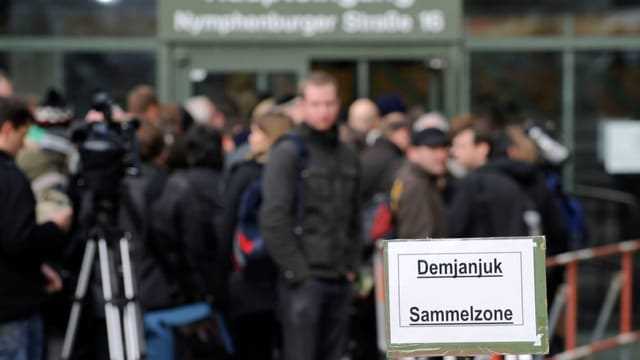contents
The charge against the 101-year-old is accessory to murder in 3,500 counts. It is one of the last Nazi trials; most of the perpetrators are already dead.
Josef S. was a guard at the Sachsenhausen concentration camp. He denies it, but the burden of proof is huge. Experts have meticulously examined statements from his family, letters, documents and photos. The case against him has been ongoing since last fall. The 101-year-old sits in a wheelchair and listens to the public prosecutor’s plea with almost no movement through headphones.
Attorney Thomas Walther represents eleven joint plaintiffs. For years he has been making sure that the elderly perpetrators are still held accountable. “There was never any grace before the Lord for the old people in the camps. And the worst thing is: There was no mercy in the camps for the newborns,” says Walther.
voice of the victims
It is more important than a sentence to be able to speak about these crimes before a German court, says Thomas Walther on the victims’ perspective: “Now I’ve finally been able to say something for myself as a survivor and my murdered relatives, which nobody in the German judiciary had been able to say for decades more interested.”
After the Nuremberg trials after the Second World War, there were hardly any such trials for a long time. Historian Christian Molitor has dealt intensively with the Nazi crimes. “It is undisputed to this day that we had a completely misguided processing of the Nazi crimes.”
Many of the perpetrators became pillars of post-war society. But the past was suppressed by perpetrators and victims. Josef Schuster points this out. He is President of the Central Council of Jews in Germany. “Because you didn’t have the courage to deal with it. They didn’t want to deal with it either. You were afraid that you or your family would be discredited. Now there are hardly any survivors, but also hardly any more perpetrators. »
There are also legal reasons. For years, attempts were made to attribute individual, concrete acts in the camps to the accused, such as shootings. That was next to impossible. Thomas Will heads the central office for the investigation of Nazi crimes. He says: «At that time the reviews of the concentration camps were considered to be completed from a criminal point of view. The process had developed over decades. The Demjanjuk case was ultimately the door opener that we dealt with the topic again.”
Lawyer Rajmund Niwinski also represents joint plaintiffs. “The fact that, despite these omissions, people are still digging so energetically shows that the handling is very correct. And the fact that you knowingly expose yourself to criticism and are still conducting these procedures at such a late stage is a positive sign for me. It characterizes this culture of remembrance in Germany in a particularly positive way.”
Refurbishment points to the future
Calling the perpetrators to account and the trials against the last perpetrators of these horrible crimes are more relevant than ever with the war in Ukraine, says lawyer Thomas Walther: “We are talking about crimes from the years 1944/45. At the same time, the same crimes are happening again in the same place, in Kharkiv or Mariupol. So it’s absolutely obvious that this could also be a warning sign on the wall for a deputy of violence in Moscow.”
Thomas Walther’s years of efforts to get the Nazi crimes dealt with legally also point to the future.
